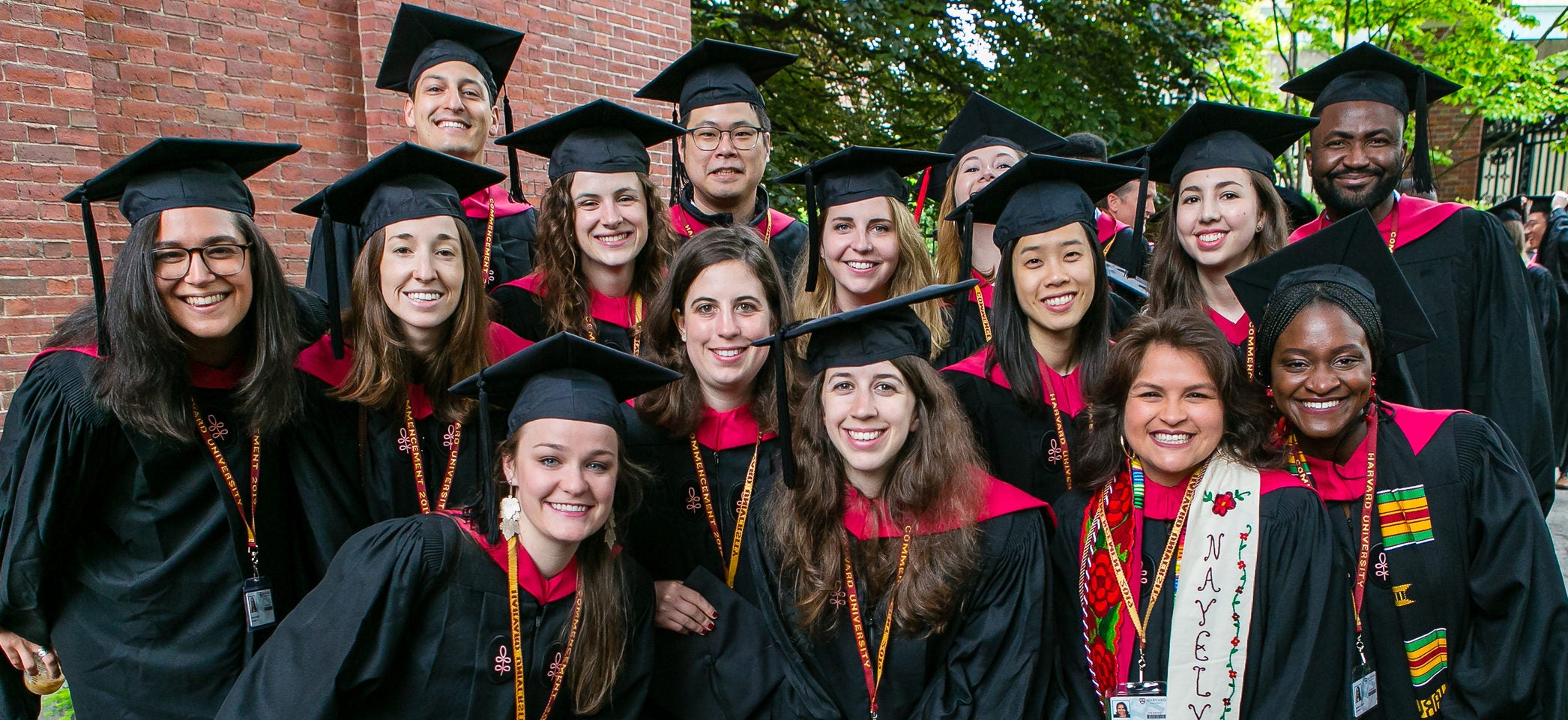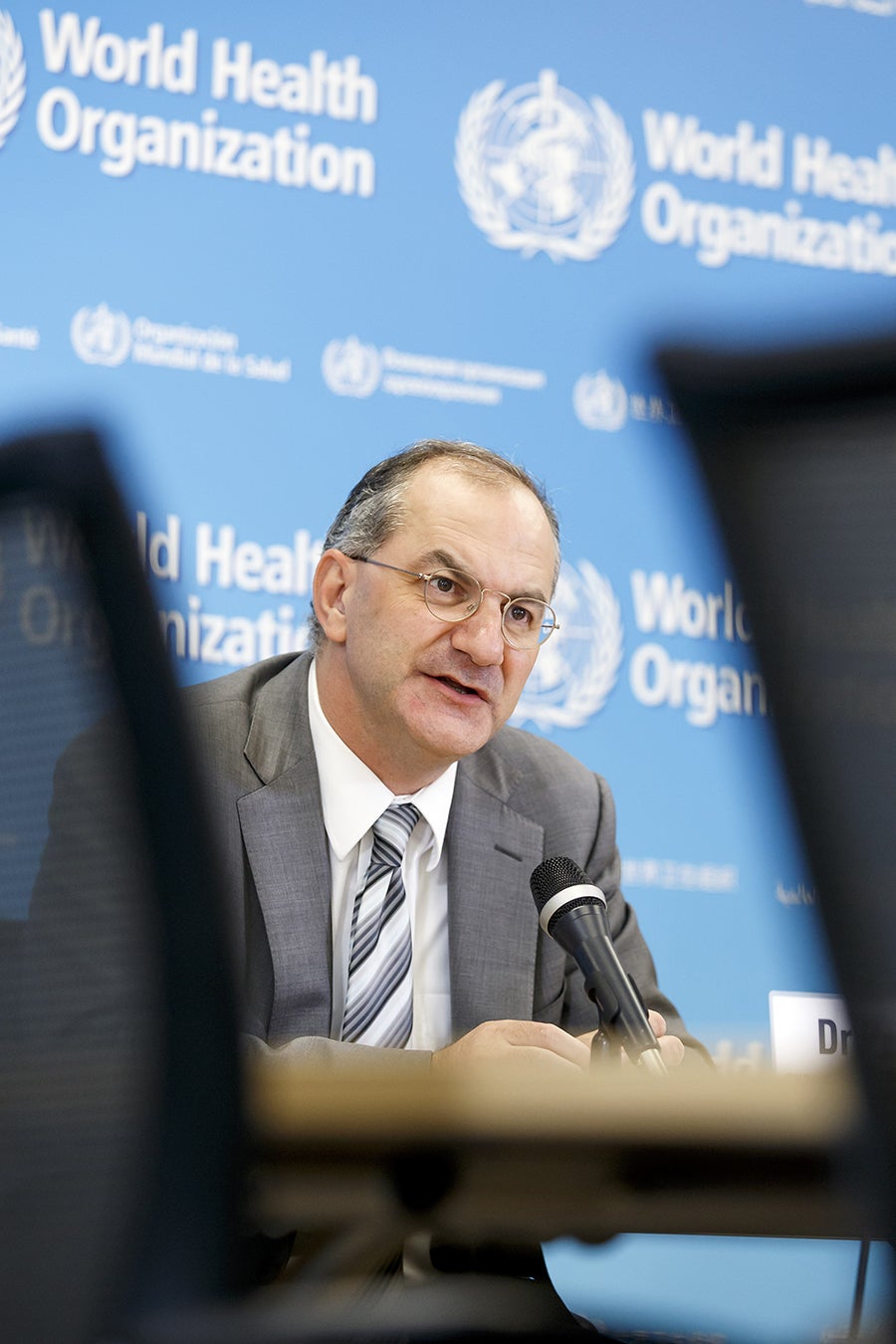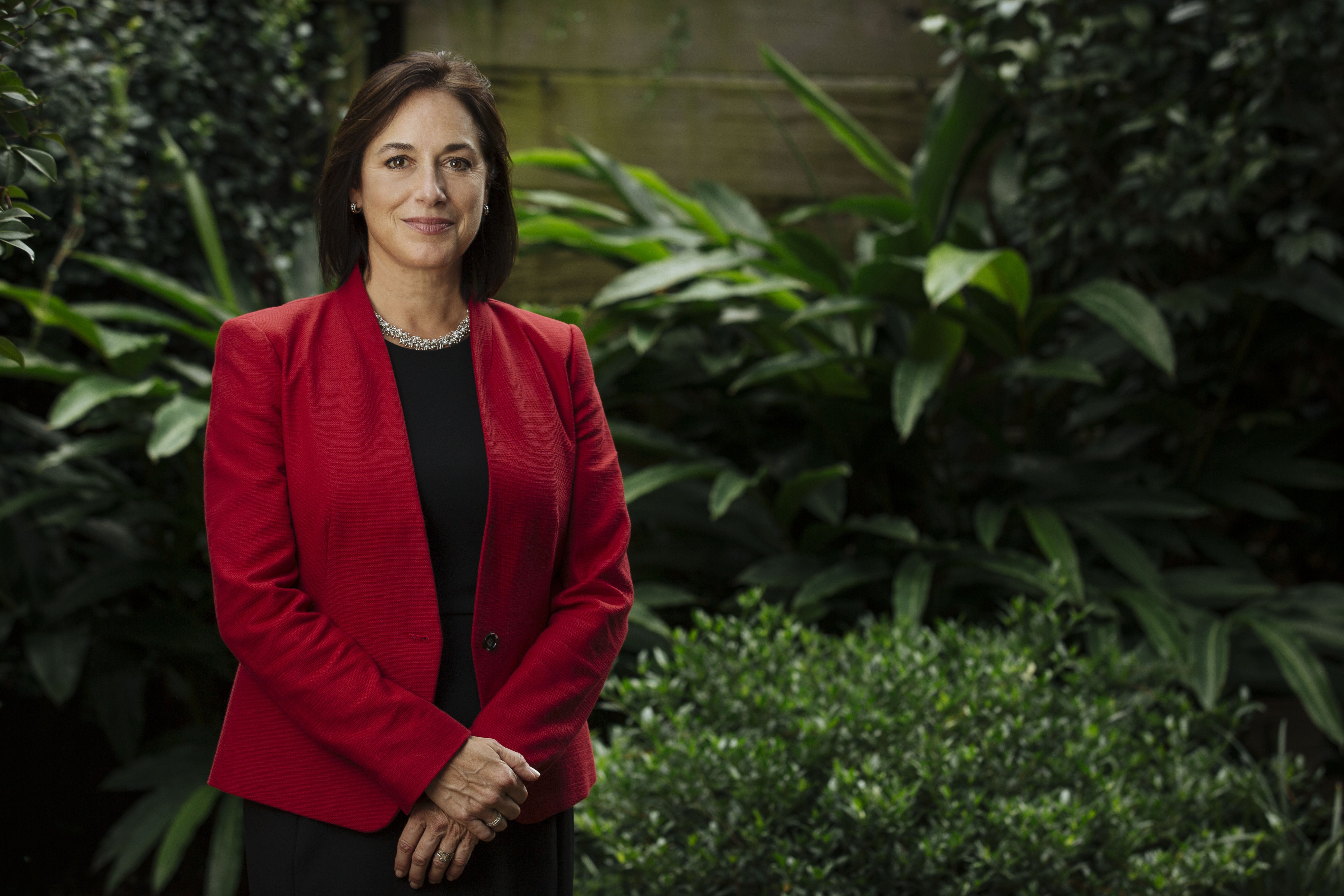
1962
Leslie M. Klevay, SM, SD ’66, was inspired by Kenneth H. Cooper, MPH ’62, to record his physical exercise. On July 4, 2019, Klevay reached the equivalent of riding three times around the equator on his bicycles. Professor emeritus of internal medicine at the University of North Dakota School of Medicine and Health Sciences, Klevay has published widely on the health benefits of dietary copper and other trace elements.
1981
William Paly, SM, died on October 7, 2019, from injuries sustained from a bicycling accident. He was an orthopedic surgeon at Coastal Orthopedic Associates at Beverly Hospital in Massachusetts, specializing in hand and wrist conditions and injuries. After earning his undergraduate degree from Clark University in 1975, he worked in rural health in Liberia as a Peace Corps volunteer. He met his future wife, Amy Judd, SM ’81, at the Harvard Chan School before starting down his ultimate career path as a physician. Paly attended the University of Massachusetts School of Medicine and completed his residency in orthopedic surgery at Yale University and a fellowship in hand surgery at Tufts University.
1986
Fong Wang Clow, SM, SD ’89, received the School’s 2019 Lagakos Distinguished Alumni Award, presented in October 2019. A biostatistician who has helped bring numerous lifesaving drugs to market, Clow is senior vice president and head of biometrics and data management at Pharmacyclics. The award recognizes extraordinary achievements of graduates from the School’s Department of Biostatistics.
1995
Dr. Mark Kortepeter, MPH, has published the memoir Inside the Hot Zone, a Soldier on the Front Lines of Biological Warfare (Potomac, 2020). The book is a real-life medical thriller about infectious disease and public health crises that Kortepeter dealt with as a leader at the U.S. Army Medical Research Institute of Infectious Diseases (aka the “hot zone”), with an insider’s view of the 2001 anthrax attacks, Ebola, smallpox, botulism, and Operation Iraqi Freedom.
In Memoriam: Peter Salama, MPH ’97
 Peter Salama, a widely respected medical epidemiologist and humanitarian, died of a suspected heart attack on January 23 at age 51. He was the executive director of the World Health Organization’s Division for Universal Health Coverage–Life Course, and at the time of his death was working with officials in Somalia to bring universal health coverage to the country.
Peter Salama, a widely respected medical epidemiologist and humanitarian, died of a suspected heart attack on January 23 at age 51. He was the executive director of the World Health Organization’s Division for Universal Health Coverage–Life Course, and at the time of his death was working with officials in Somalia to bring universal health coverage to the country.
Salama previously served as head of WHO’s Health Emergencies Program from 2016 to 2019. He also served at UNICEF, where for 14 years he held leadership roles around the world, including chief of health and nutrition in Afghanistan, representative in Ethiopia and Zimbabwe, regional director for the Middle East and North Africa in Jordan, global chief of health and HIV, and global Ebola coordinator.
Salama earned a medical degree at Australia’s University of Melbourne in 1993 before attending the Harvard Chan School. He worked for Médecins Sans Frontières and Concern Worldwide in several countries in sub-Saharan Africa and Asia and went on to join the U.S. Centers for Disease Control and Prevention Epidemic Intelligence Service.
1998
Emily Ying Yang Chan, SM, published Climate Change and Urban Health (Routledge, 2019), Disaster Public Health and Older People (Routledge, 2019), and Public Health and Disasters: Health Emergency and Disaster Risk Management in Asia (Springer, 2020). Chan received the quadrennial National Teaching Achievement Award (High Education) from the Ministry of Education, People’s Republic of China, in December 2018. She is assistant dean, professor, and head of the Division of Global Health and Humanitarian Medicine at The Chinese University of Hong Kong Faculty of Medicine. She also serves as co-chair of the WHO Thematic Platform for Health Emergency and Disaster Risk Management.
2001
Patrik Johansson, MPH, received a Harvard Alumni Association Award in October. The award recognizes outstanding service through alumni leadership and engagement. Johansson served nine years on the School’s Alumni Council. Of African American, Cherokee, and Swedish descent, Johansson was integral in ensuring representation of the Chaubunagungamaug Band of Nipmucks, the Mashpee Wampanoag Tribe, the Nipmuc Nation (Hassanamisco), and the Wampanoag Tribe of Gay Head (Aquinnah) in ceremonies commemorating the 350th anniversary of the Harvard Indian College. Johansson is associate professor and director of the Practice Based Research Network, Elson S. Floyd College of Medicine, Institute for Research and Education to Advance Community Health, Washington State University.
2005
Suraya Dalil, MPH, was appointed in February the World Health Organization’s director of the special program in primary health care. She is a former minister of public health in Afghanistan.
2006
Gillian Rattray Carcia, MPH, was reappointed to the Framingham, Massachusetts, Board of Health for a three-year term and was named chair in February. Carcia is the associate general counsel at Harvard Pilgrim Health Care.
Raymond Tsai, SM, is a 2020 Presidential Leadership Scholar, the program announced in January. Tsai, Executive Medical Officer of The Wonderful Company, joined a diverse group of 60 leaders chosen to learn about leadership through the lens of presidential experiences. Over the course of six months, Leadership Scholars travel to participating presidential centers to learn from former presidents and other leaders.
2014
Scott Ellner, SM, was selected as CEO of Montana’s Billings Clinic, effective in January. Ellner most recently served with Centura Health in Colorado as the group president for the physician enterprise, which covers 17 hospitals and 235 clinics across Colorado and western Kansas. He previously served as president of the Saint Francis Medical Group in Hartford, Connecticut. He worked as trauma surgeon at Saint Francis Hospital and Medical Center and was an assistant professor of surgery at the University of Connecticut School of Medicine.
2018
Bobby Brooke Herrera, PhD, was recognized on Forbes’ 30 Under 30 Healthcare list in December. As a student, Herrera developed T cell–based diagnostic tools for Zika, dengue, and Ebola viruses that were implemented in local hospitals and labs. He is now the co-founder and chief scientific officer at E25Bio Inc., which is developing inexpensive, rapid diagnostic tests for patients in developing countries. He also is a visiting scientist in Harvard Chan School professor Phyllis Kanki’s lab, where he studies the impact of Zika virus infection on pregnant women in Africa.
Carl Streed Jr., MPH, was appointed in 2019 as the research lead for the Center for Transgender Medicine and Surgery at Boston Medical Center. He is an assistant professor of medicine at Boston University School of Medicine. His work on LGBTQ health issues was recognized with the University of Chicago Early Career Achievement Award and the Greater Boston Chamber of Commerce Outstanding Young Leader Award.
Alvin Tran, SD, joined the University of New Haven last fall as assistant professor of health administration and policy. A former health reporter whose research focuses on body image, disordered eating behaviors, and health policy, Tran is teaching health communication and public health courses. He also launched the WeEmbody Lab, a working group of public health professionals and students who will focus on the sociocultural factors associated with body image and disordered eating, as well as research around health policy, stigma, discrimination, racial and ethnic-minority health, and LGBTQ health. Tran was also named one of Connecticut Magazine’s Top 40 Under 40 Influential Up-and- Comers in 2020.

Pioneering a new role at Google: Karen DeSalvo, SM ’02, brings a background in public health, academia, medicine, and informatics to the tech giant.
In December 2019, Karen DeSalvo started as the chief health officer at Google Health, a new role for the company. That same month, the potentially lethal coronavirus now known as COVID-19 emerged in Wuhan, China.
As disconcerting as it was for DeSalvo to see the virus race around the world, she also saw firsthand how Google could help—for example, by connecting people searching for “coronavirus” or “COVID-19” to authoritative sources such as the World Health Organization and the U.S. Centers for Disease Control and Prevention.
“We have such a reach to be able to do public health messaging,” she says. In her previous public service roles, both in the Obama administration and in New Orleans, it was often a struggle, she admits, to deliver crucial public health information to those who needed it most.
DeSalvo’s career—which has spanned public health, academia, medicine, and technology—prepared her well for her new post at Google. Among her current positions, she’s a professor in the Departments of Medicine and Population Health at the University of Texas at Austin Dell Medical School. Under President Barack Obama, she served as acting assistant secretary for health from 2014 to 2017 and national coordinator for health information technology from 2014 to 2016. As health commissioner in New Orleans from 2011 to 2014, she helped reengineer health care following Hurricane Katrina. Before that, she served as vice dean for community affairs and health policy at Tulane University School of Medicine and as its chief of general internal medicine and geriatrics.
At Google Health, DeSalvo is building the team’s clinical and public health expertise, and partnering with engineers and others across the company, “to make sure we’re solving the right problems and doing it in the right way,” she says. Google is venturing into the health arena because, among other reasons, it’s a consumer-oriented company—and consumers care a lot about health. Millions already use Google every day to seek health information. “We want to be more responsible stewards of the information that they get when they come to us,” DeSalvo explains, “and help them take appropriate action.”
Under DeSalvo’s leadership, Google is launching projects to help people organize their own health information; create clinical tools for doctors, nurses, and other health care workers; and deploy artificial intelligence and machine learning to better predict and diagnose disease. For instance, the company is developing tools to help clinicians view electronic health records on their mobile phones and exploring how artificial intelligence can help improve the accuracy of mammograms and reduce the time it takes for women to receive test results.
With the onslaught of COVID-19, “literally every minute of every day, we’re trying to think through what we could do next to be supportive of public health authorities who are trying to do important work in this pandemic,” DeSalvo says. As the disease picked up steam through the winter and spring, Google Health and other Google teams began exploring ways to help people around the world find information—and avoid misinformation— and stay connected and productive. Coronavirus- related searches on Google now automatically turn up links to federal and state information about closures, quarantine, testing, and travel, as well as general information about COVID-19. Google’s new “Do The Five” campaign offers five tips for helping stop the virus, such as frequent handwashing and staying home. Google and other Alphabet subsidiaries, such as Verily and DeepMind, are also exploring other ways to help. One research effort, for example, uses artificial intel- ligence to look at protein folding in the coronavirus, which could inform the development of countermeasures, such as antiviral medications or a vaccine.
Confronted by the pandemic’s daunting challenges, DeSalvo retains a signature optimism. “As a public health person, I couldn’t be more pleased at how much the world now understands what an epidemiologic curve is, and the importance of flattening the curve and delaying its peak,” she says.
She adds that her experience in New Orleans taught her that lasting innovations often emerge when disaster strikes. Before Katrina, uninsured or low-income people in New Orleans tended to go to hospitals for care. When the hurricane forced hospitals to close, DeSalvo and colleagues helped create makeshift urgent-care stations across the city to fill the gap. Those stations led to the creation of community health clinics that are now flourishing, she says.
COVID-19 might leave its own legacy of improvements, such as expanding the use of telehealth or persuading politicians to approve more resources for the nation’s public health infrastructure, which has been stretched thin during the pandemic. DeSalvo has no doubt that scientists will gain profound knowledge from the outbreak. For her public health mantra, she quotes a great wartime leader from another era, Winston Churchill: “Never let a good crisis go to waste.”
Karen Feldscher is a senior writer in the Harvard T.H. Chan School of Public Health Office of Communications.
Harvard Public Health is interested in hearing from you. Please send comments or class notes to:
Amy Roeder, Associate Editor Harvard Public Health
90 Smith Street
Boston, MA 02120
Phone: 617-432-8440
Fax: 617-432-8077
magazine@hsph.harvard.edu







